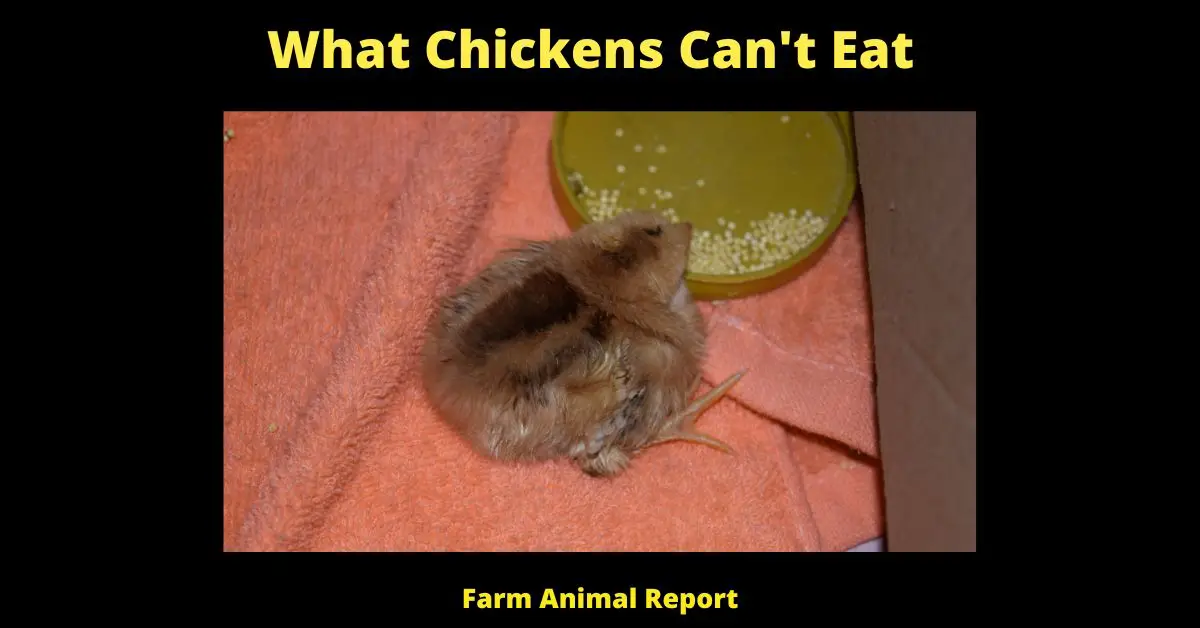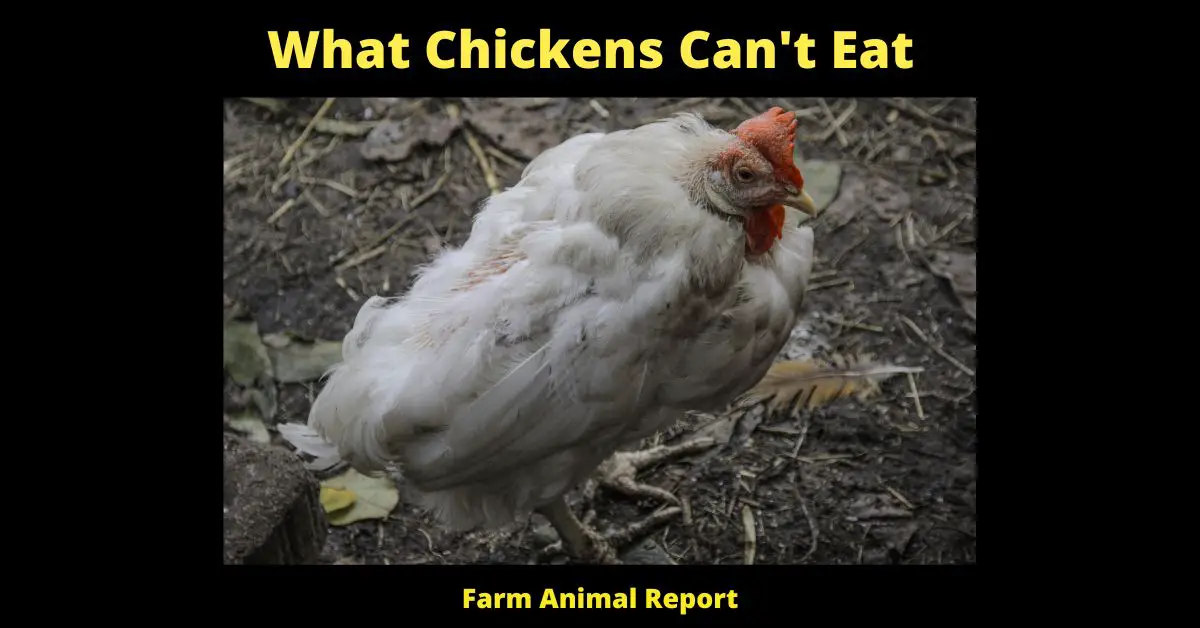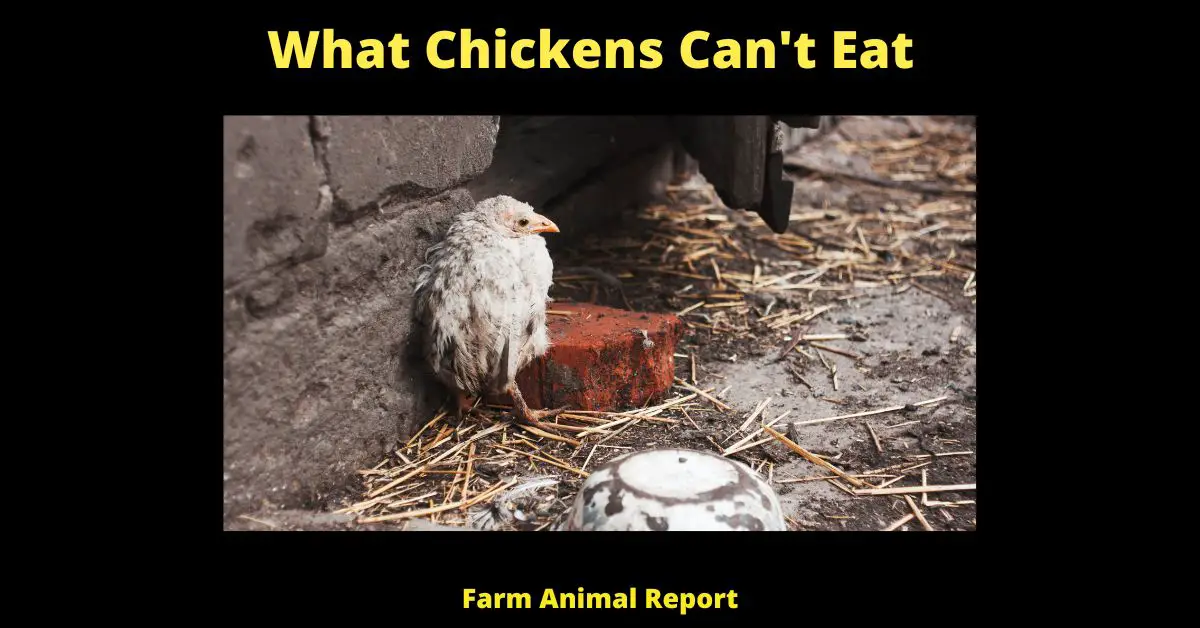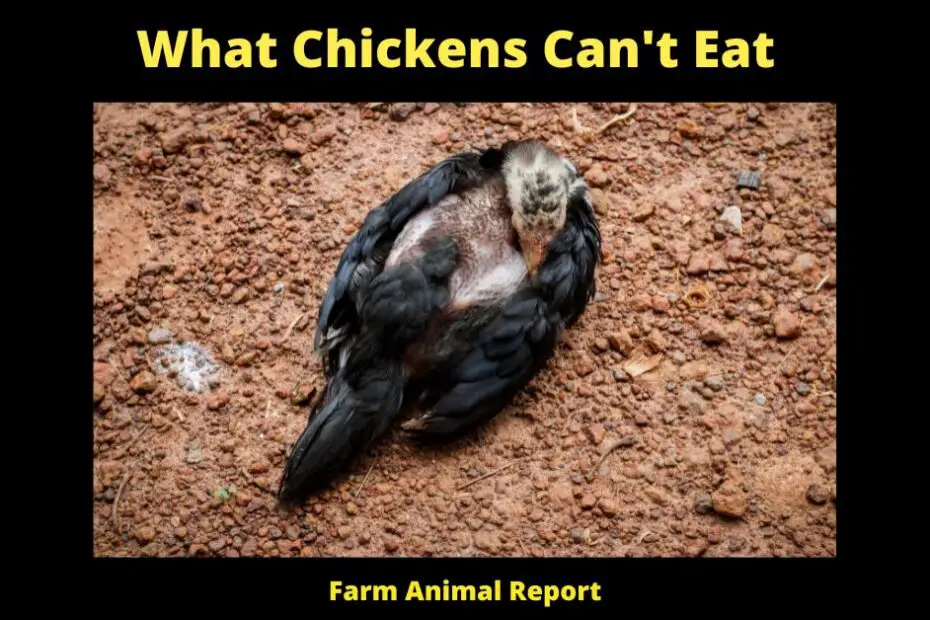What do chickens eat? What can’t they eat? If you’re raising backyard chickens, it’s important to know what they should and shouldn’t be eating. In this comprehensive guide, we’ll break down everything you need to know about the chicken feed. From grains and vegetables to fruits and treats, we’ll tell you what your chickens can and can’t snack on. So, What Chickens Cant Eat? Keep reading to find out!
What Chickens Cant Eat?
Chickens are omnivores, which means they will eat just about anything. However, there are some things that chickens should not eat as they can be harmful to their health. For example, chickens should not eat moldy or spoiled food as this can cause them to become ill. Avocados are also harmful to chickens as they contain a toxin called persin which can damage their lungs and heart. In addition, raw beans and uncooked potato skins can be poisonous to chickens as they contain solanine, a toxin that can cause nausea and vomiting. As a result, it is important to be aware of what chickens can and cannot eat in order to keep them healthy and safe.

Here is a list of Foods that Chickens cant eat;
- Avocados
- Chocolate
- Citrus
- Uncooked Beans
- Apple seeds
- Bread
- Cabbage
- Coffee Grounds
- Green Tomatoes
- Rhubarb
- Butter
- Cherry Pits
- Raw Chicken
- Eggplant Leaves
- French Fries
- Wild Mushrooms
- Onions
- Potatoes
- High Fats
- Rancid
- Moldy
- Spoiled
- High Salts
- Insecticides
- Herbicides
What is Solanine?
Solanine is a bitter-tasting steroidal alkaloid that has been isolated from all nightshades, including tomatoes and eggplants. However, it’s most widely ingested as part of the potato family because they contain high levels of solanine Within their leaves stems shoots or even skin.
What foods are toxins called Persin in?
Persin is a toxin that is found in some foods. It can be found in avocados, nuts, and seeds. Persin is also found in the skin and pits of fruits such as apples and cherries. It is important to note that persin is not harmful to humans, but it can be deadly to animals. For example, Chickens can experience vomiting and diarrhea if they eat persin-containing foods. In severe cases, it can lead to liver failure or death. As such, it is important to be aware of the foods that contain persin before feeding them to your Flock.

13 Plants: What Plants Cant Chickens Eat?
- Buttercup
- Daffodil
- Delphinium
- Foxglove
- Horse Chestnut
- Hyacinth
- Hydrangea
- Ivy
- Lupin
- Oleander
- Rhodendron
- Rhubarb
- Tulip
- Wisteria
- Yew

What are the Symptoms of your Chicken being poisoned?
Chickens are known to be fairly resistant to poison, but that’s not to say they can’t be victims of poisoning. If you think your chicken may have been poisoned, look out for these symptoms:
- Vomiting
- Diarrhea
- Lethargy
- Seizures
- Tremors
- Paralysis
If you notice any of these symptoms, it’s important to seek professional help immediately as chickens can die very quickly from poisoning. In the meantime, try to remove any potential sources of toxins from their environment and ensure they have access to fresh water. With prompt treatment, most chickens will make a full recovery from poisoning.
What Should I do if my chickens have eaten something they shouldn’t?
Chickens are curious creatures and will often peck at anything that catches their attention. While most things they eat won’t harm them, there are some things that can be dangerous. If you think your chickens have eaten something they shouldn’t, the first thing you should do is try to identify the substance. If it is something potentially harmful, such as a chemical or pesticide, call your local poison control center for advice. If the substance is not harmful, but you’re still concerned, give your chickens plenty of fresh water and watch them closely for any signs of illness. Most importantly, don’t panic. Chickens are surprisingly resilient creatures and will usually be just fine even if they have eaten something they shouldn’t have.
Give lots of Clean water, if your chickens have eaten something they shouldn’t.
Chickens are attracted to anything that glitters, so it’s not surprising that they sometimes eat things they shouldn’t. If you think your chicken has eaten something it shouldn’t have, the first thing to do is give it a lot of clean water. This will help to flush out anything that might be harmful. If the chicken seems lethargic or unwell, you should contact a vet as soon as possible. In most cases, however, chickens will recover quickly after eating something they shouldn’t have. Just make sure to keep an eye on them and give them plenty of clean water.
What are Low Nutrition Foods that are Bad for Chickens?
Chickens need a diet that is high in protein and nutrients in order to stay healthy and lay eggs. However, there are some low-nutrition foods that can be bad for chickens. For example, table scraps such as bread, pasta, and rice are low in protein and can make chickens tired and sluggish. In addition, too much corn can give chickens diarrhea, and moldy or spoiled food can make them sick. As a result, it’s important to be aware of what low-nutrition foods are bad for chickens so that you can avoid feeding them to your flock.
What Liquids should you not give your chickens?
There are a few liquids that you shouldn’t give your chickens. Milk, for example, can give them diarrhea. Alcohol is also a bad idea, as it can make them very sick. You should also avoid giving them sugary drinks, as this can lead to obesity and other health problems. In general, it’s best to give your chickens water that has been treated with a little bit of vinegar or lemon juice. This will help to keep them healthy and hydrated.
Will Chickens Naturally avoid Foods that are Bad for them?
In general, chickens are very curious creatures and will try just about anything once. This can sometimes lead to them eating things that they really shouldn’t. However, there are some foods that they will naturally avoid because they can sense that they are bad for them. For example, spoiled food or food that has gone moldy is something that they will typically steer clear of. This is because their keen sense of smell allows them to tell that the food is no longer fresh and safe to eat. In addition, chickens have a natural aversion to certain poisonous plants and chemicals. While this doesn’t always stop them from trying to eat these things, it does usually prevent them from consuming large quantities that could make them sick. So, while chickens may not always make the best choices when it comes to food, they do have some built-in mechanisms that help to protect them from eating things that are bad for them.
Final Thoughts – What Chickens Cant Eat?
As a general rule, low-nutrition foods should always be used in moderation. Sugary food is bad and can cause obesity. Any Chemicals can be deadly to your flock also. If you think your chicken has eaten something it shouldn’t have, the first thing to do is give it a lot of clean water. This will help to flush out anything that might be harmful. If the chicken seems lethargic or unwell, you should contact a vet as soon as possible. In most cases, however, chickens will recover quickly





